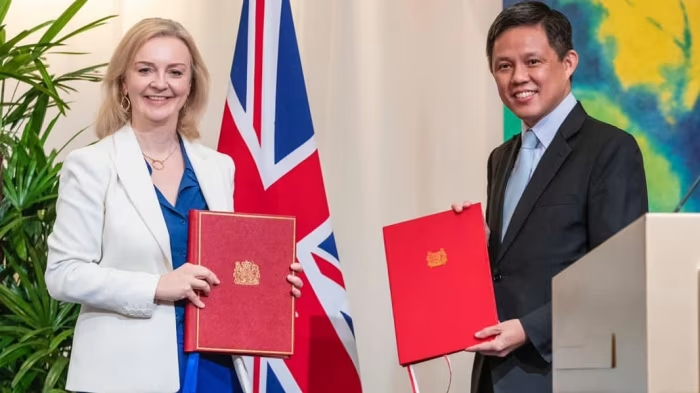In today’s interconnected economy, tariff policies introduced by major economies like the United States have global repercussions that extend far beyond their borders. Among the countries navigating these changes are the United Kingdom and Singapore — two nations bound by a deep history of trade, financial collaboration, and strategic partnership, Recent discussions between UK and Singaporean leaders have underscored how shifts in US tariff structures are indirectly shaping bilateral trade dynamics and influencing how importers manage cross-border logistics.
1. Global Tariffs and Their Ripple Effects
The US has introduced a series of tariffs targeting strategic industries, particularly in technology, steel, and green energy sectors. While these measures are designed to protect domestic production, they have triggered global supply chain adjustments. The UK, as a major transatlantic partner, and Singapore, as a logistics and re-export hub, are both feeling the effects in different ways.
For the UK, the challenge lies in recalibrating export competitiveness. Higher input costs from tariff-affected components, can inflate product prices, reducing the attractiveness of UK goods in Asian markets,
For Singapore, the issue manifests through indirect trade disruptions — particularly when importing UK products that rely on tariff-impacted US inputs or logistics routes. that face delays due to shifting supply chains.
2. Impact on Businesses and Importers
For UK exporters, rising tariffs on raw materials and intermediary goods can lead to higher final prices, potentially reducing market demand. share in regions like ASEAN, Singaporean importers. on the other hand, face indirect challenges:
Delays in product availability
Increased shipping and insurance costs
Complicated customs declarations for goods with mixed origins
These factors make traditional trade routes less predictable, and can erode profit margins for Singaporean SMEs that rely on UK goods.
3. UK-Singapore Dialogue: A Strategic Response
In recent bilateral meetings, UK and Singapore leaders have discussed how to mitigate these external trade pressures. Both nations have reaffirmed their commitment, to free and open trade, emphasizing the importance of flexibility in supply routes and innovative logistics solutions.
Singapore, with its position as a gateway to Southeast Asia, continues to offer the UK a crucial export base post-Brexit. Meanwhile, the UK views Singapore, as a model for resilient, high-efficiency trade systems, particularly in digital customs clearance, port automation, and small-parcel logistics — sectors that could play a key role in softening, the blow of tariff disruptions.
4. The Road Ahead
The evolving global tariff environment presents both challenges and opportunities. For the UK and Singapore, strengthening logistics cooperation_including smarter customs frameworks and e-commerce facilitation_will be key to maintaining competitiveness.
Parcel forwarding and other digital logistic,s innovations may not eliminate the effects of global tariffs, but they offer adaptive pathways for businesses to sustain trade flow and customer trust. As discussions between UK and Singapore leaders continue, the emphasis on resilient, tech-driven supply chains signals a pragmatic shift in how nations approach trade in an era of policy uncertainty.
5. Parcel Forwarding as a Practical Workaround
To navigate these hurdles, many Singaporean businesses are turning toward parcel forwarding services such as those offered with myUKmailbox, which provide a flexible and cost-effective solution, Parcel forwarding enables importers to purchase goods directly, from UK retailers or distributors, consolidate multiple shipments, and forward your items to Singapore under simplified logistics channels.
Advantages of Parcel Forwarding-
Cost Efficiency: Consolidating small parcels reduces, per-unit shipping costs.
Speed & Flexibility: Bypasses large-scale freight delays caused by tariff-induced congestion.
Transparency: Real-time tracking and digital customs documentation simplify compliance.
Market Access: Allows SMEs to source directly from UK e-commerce platforms even amid trade turbulence.
This model supports Singaporean importers in maintaining access, to high-quality UK goods without fully absorbing the financial impact of upstream tariffs or logistical bottlenecks.
The future for Singapore Importers
Global tariffs are reshaping trade landscapes in ways that test even the most established partnerships. The UK and Singapore’s proactive dialogue demonstrates that collaboration, innovation, and logistics agility can help buffer against, such shocks. For Singaporean importers, parcel forwarding emerges as more than a workaround — it is a strategic tool for maintaining supply, continuity, market reach, and commercial resilience in an era of unpredictable trade policy.

